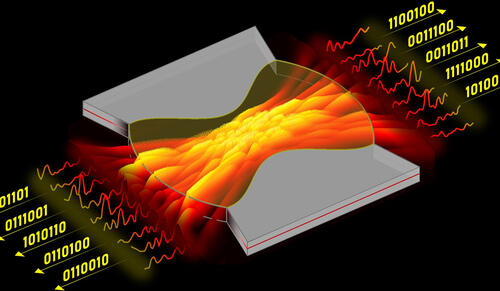
Random numbers are increasingly important to our digitally connected world, with applications that include e-commerce, cryptography, and cloud computing. Producing a large amount of truly random numbers quickly, though, is a challenge.
“Usually, those physical random number generators are not very fast — that’s one problem,” said Yale’s Hui Cao, the John C. Malone Professor of Applied Physics and professor of physics and of electrical engineering, who led the study. “Also, they are sequential — that is, they usually just generate one bitstream. They cannot generate many bitstreams simultaneously. And in each stream, the rate is relatively low, so that prevents it from generating a lot of random numbers very quickly.”
Click below for full article.